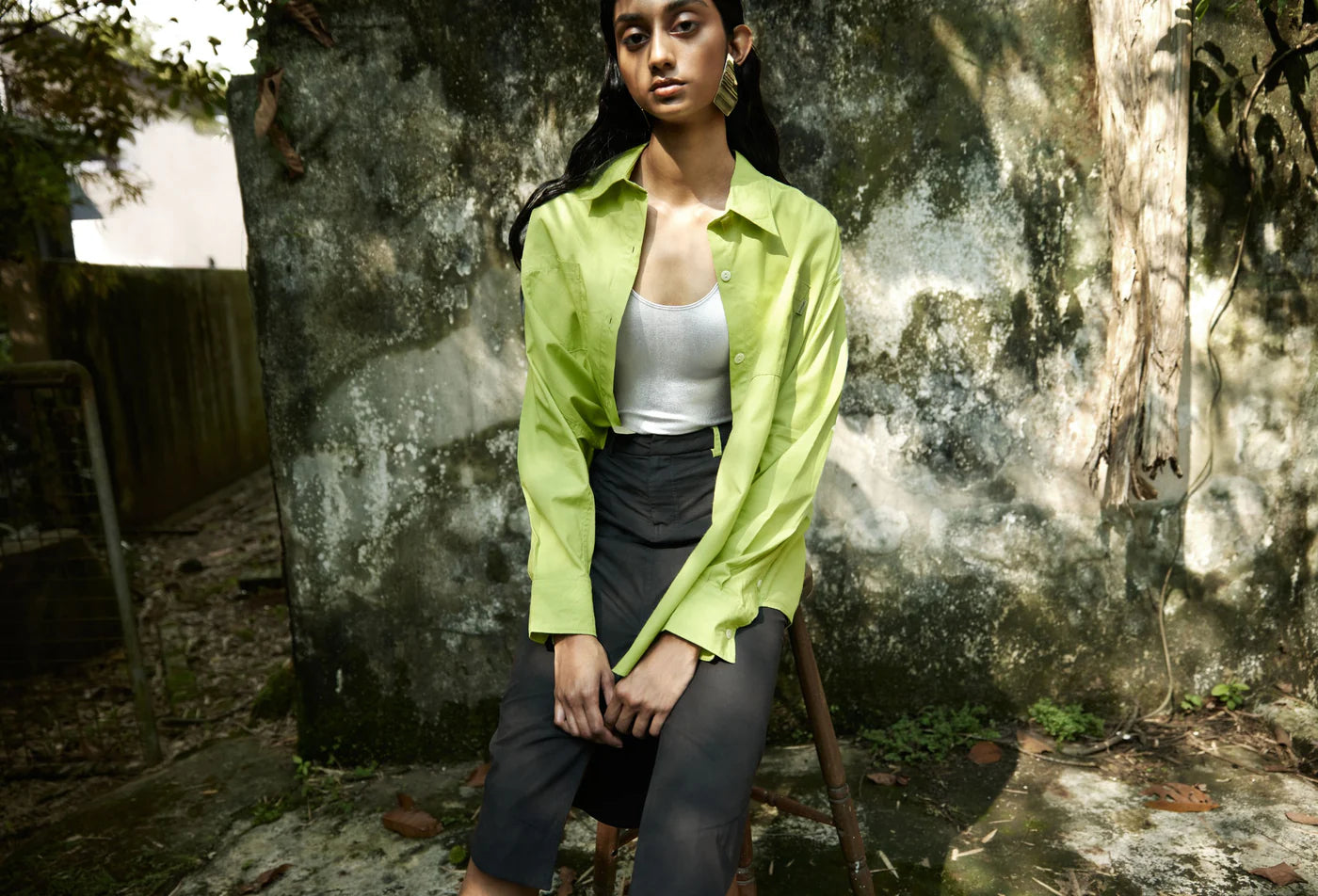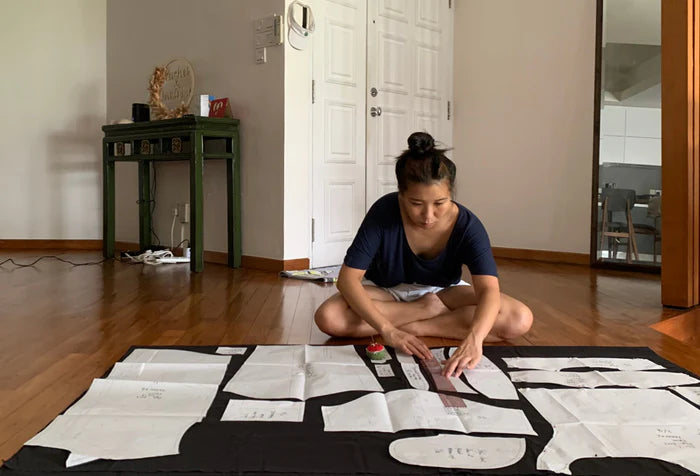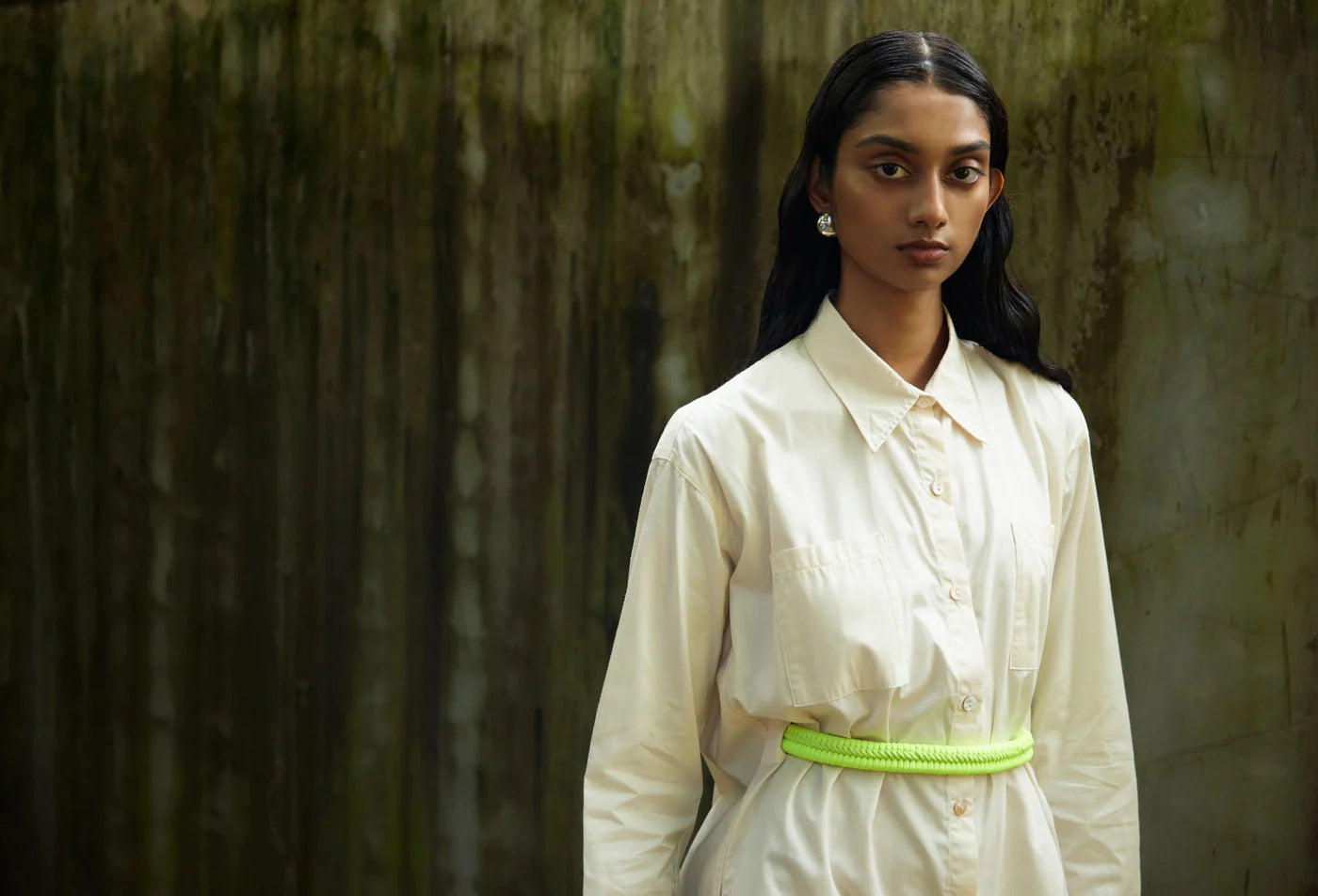
Fashioning a Greener Tomorrow Through Sustainable Fashion in Singapore
Fashion has been under scrutiny for being the third most polluting industry globally. At Rock Daisy, we are adding ourselves to the mix of sustainable fashion in Singapore so fashion can top the charts for the right reasons. We care about what women in Singapore wear, down to the fibre.
Let’s dive into Singapore's sustainable fashion scene and the fresh alternatives to fast fashion.
The State of Sustainable Fashion in Singapore
Singapore's fashion industry is projected to grow at an annual growth rate of 4.1% from 2020 to 2025. While many brands prioritize factors other than sustainability, emerging eco-friendly brands are choosing sustainable materials and ethical production methods.
Consumer Behavior
Singaporeans love to shop, with women’s apparel leading the way. According to Statista, the local shopper is buying an average of 43 pieces in 2024. Sustainable clothing in Singapore has been climbing in market share, growing from 4% in 2020 to 5.2% in 2024, and a projected growth to 6.1% in 2026. Even so, more education and action is needed to drive the shift towards mindful consumption and greener fashion. Conscious communities are leading the way with community events and workshops on sustainable fashion.
Growth in Sustainable Fashion Events
Sustainable fashion events in Singapore are on the rise, featuring fashion shows, exhibitions, and conferences dedicated to eco-friendly fashion. These platforms provide opportunities for stakeholders to showcase sustainable clothing in Singapore, exchange knowledge, sustainable dresses and advocate for sustainable fashion practices.
Here’s a glimpse into local sustainable fashion efforts:
Eco Fashion Awards: Part of the inaugural Eco Fashion Weekend, the Eco Fashion Awards celebrates brands, initiatives and publications that are committed to sustainability and social impact. Some of the awards handed out include the Green Fashion Journalism Award clinched by Honeycombers, the Ethical Content Creator of the Year Award won by @theweirdandwild, and the Community Empowerment Through Fashion Award received by Singapore Fashion Runway.
library@orchard Slow Fashion Exhibiton: From 3 May to 30 May, Adel Ng’s slow fashion exhibition will be displayed at library@orchard’s Trend Gallery. From February to April 2024, the designer and maker was stationed at library@orchard as part of its artist-in-residence programme with an open studio.
Circularity in Fashion Workshop: The Singapore Fashion Council held a workshop on circularity in fashion, fostering awareness of the resources available to run greener businesses including SFC courses, green finance, government grants and tracking tools.
Fashion Revolution Week: This year, Singapore celebrates the 10th year of participating in the Fashion Revolution Week, with a remembrance ceremony of the Rana Plaza disaster and public engagements. The host, Fashion Revolution Singapore’s charter also published a digital zine, Manifesto, collating 10 local responses to ‘Manifesto for a Fashion Revolution’.
With more frequent community efforts, sustainable fashion is finding its way into the minds of Singaporean shoppers.
Rise of Eco-Friendly Fashion Materials
While slowing down consumption is difficult, the integration of eco-friendly materials has been gaining momentum. Materials like organic cotton, recycled polyester, and bamboo fabric are becoming increasingly popular for their breathability and eco-friendliness.
Eco-Friendly Fabrics Used in Sustainable Fashion
In contrast to fast fashion's reliance on polyester, eco-conscious brands are turning to natural fibers. Organic cotton, hemp, bamboo, and TENCEL™ (Lyocell) offer comfortable and sustainable alternatives, reducing environmental impact.
Organic Cotton: Grown without the use of synthetic pesticides or fertilizers, organic cotton offers several environmental benefits. By avoiding harmful chemicals, organic cotton farming reduces soil and water pollution, preserves biodiversity, and promotes healthier ecosystems. Additionally, organic cotton production typically consumes less water compared to conventional cotton farming methods, contributing to water conservation efforts.
Hemp: Hemp is renowned for its sustainability and versatility. As a fast-growing plant, hemp requires minimal water and no pesticides or synthetic fertilizers to thrive, making it an eco-friendly alternative to traditional crops. Hemp fibers are incredibly durable and resistant to mold, UV rays, and abrasion, resulting in long-lasting and resilient textiles.Furthermore, hemp cultivation can improve soil health by replenishing nutrients and preventing soil erosion, making it a valuable asset in sustainable agriculture practices.
Bamboo: Bamboo is celebrated for its rapid growth rate and minimal environmental impact. As one of the fastest-growing plants, bamboo can be harvested sustainably without depleting natural resources. Bamboo cultivation requires significantly less water compared to conventional crops, and it can thrive in diverse climates without the need for chemical inputs. Bamboo fabric is prized for its softness, breathability, and moisture-wicking properties, making it ideal for eco-conscious apparel. Additionally, bamboo is biodegradable, ensuring minimal environmental impact at the end of its lifecycle.
TENCEL™: TENCEL™, also known as lyocell, is a sustainable fabric derived from wood pulp, typically sourced from eucalyptus trees. The production process of TENCEL™ involves a closed-loop system that recycles solvents and minimizes waste, resulting in a highly eco-friendly material. TENCEL™ fibers are renowned for their exceptional softness, breathability, and moisture absorption, providing comfort and performance for durable apparel. Moreover, eucalyptus trees used in TENCEL™ production are cultivated on marginal land unsuitable for food crops, reducing competition with agricultural resources. Overall, TENCEL™ offers a sustainable and versatile alternative to conventional textiles, promoting environmental stewardship in the fashion industry.
Rock Daisy Adds to the Sustainable Fashion Scene
If you are looking for a clothing brand that cares about the environment, weather-appropriate apparel, and fashionable pieces, Rock Daisy checks all the boxes. We use natural fibres for all our pieces, primarily TENCEL™ fabric for a durable and breathable option.
Sustainable fashion is more than just using eco-friendly materials; it involves ethical manufacturing practices and waste reduction. Transparency and accountability are paramount in our supply chain, ensuring every step aligns with sustainable and ethical standards. From shortening our supply chain to partnering with like-minded manufacturers, we strive to minimize our environmental footprint while providing stylish and affordable sustainable clothing.
If you're looking for affordable sustainable fashion in Singapore, visit our online store or Instagram at @rockdaisy_ to get inspired.



